- Home
- Franklin W. Dixon
Collision Course Page 2
Collision Course Read online
Page 2
Frank and Joe gave the officer their statements, and then Reed lumbered off to join his partner, who was radioing in a report to headquarters. Frank surveyed the scene again, then turned to his brother. "I don't like this."
"Who does?" Joe responded grimly.
"Come on," Frank said, tugging at his brother's arm, "I want to ask Martin a few questions. Something just doesn't add up."
The Hardys approached the writer, who was standing by the edge of the cliff. He was staring Into the blue waters below. "Excuse me, Mr. Martin," Frank said quietly, "but i was wondering if I could ask you something."
"You know," the writer began in a distracted tone, "you think you're prepared for this sort of thing. After ten years of covering the racing circuit, you think you've seen it all. Guys get killed every year. No big surprise. But somehow, you're never really ready when it happens."
He was silent for a moment, then he said, "I'm sorry. What was it you wanted to know?"
"Were the two of you close?" Frank asked.
"Close?" Martin repeated. "Nobody was close to Angus McCoy. Everything was a competition tor him. He never let up, never wanted to lose the edge.
"You know, he hated having a ghost writer, wanted to do the book himself. But his publisher saw the first couple of chapters and had the ugly task of telling Angus he couldn't write worth beans. If it weren't for the contract, he would have fired the publisher."
"What happens to the book now? Frank pressed. "Will the publisher cancel it?'
"Are you kidding?" Martin laughed. 'This is the kind of ending publishers dream about! I can just see the title now The Fast Life and Tragic Death of Angus McCoy! And we've got the whole thing on videotape! The publisher will love it. Pictures of the famous racing driver's last moments! It'll sell millions!"
The writer laughed again, but both Frank and Joe could see the laughter was forced and bitter. Martin turned back toward the ocean and was silent for a while. Finally he said, "Does that answer your question?"
"Actually, that wasn't the question I wanted to ask," Frank said apologetically. "Something just doesn't make any sense to me. McCoy knew the layout of the course, right?"
"Sure. He'd driven it several times to get familiar with it," Martin said.
"And he didn't really have any serious competition in this race, right?"
"Right."
"So why would he push so hard? And why did he drive as though he didn't know the turn was there?"
"The answer to the first question is easy." Martin smiled. "Race drivers always push hard. They're not just racing against other drivers and the clock—they're competing against themselves.
"Angus was getting a little old for the game," Martin went on. "There were guys who said he was all washed up, so he had something to prove. As for your second question," the writer continued after a brief pause, "I don't have an answer. Angus was a much better driver than on that last turn. And it's not like this is the only course with a hairpin turn."
He shrugged. "Angus was a world champion. I don't understand it, either. This is the kind Of mistake a newcomer would make."
"What about sabotage?" Frank ventured.
The question surprised both Martin and Joe. "Who would have a motive?" Joe cut in.
"Somebody who wants to win," Frank replied simply.
At that moment Russell Arno joined them at the cliff's edge. He kicked at a small rock, and Joe watched it roll and bounce down the steep incline. He barely made out the tiny splash it made when it hit the water below.
Arno turned to him and casually said, "Well, now that McCoy is out of it, it looks like your friend Scott Lavin is the new favorite."
Chapter 3
The next day was one of those late-summer days when the sun felt somehow cooler, even though the temperature was as hot as mid-July.
Joe Hardy was sitting on his front porch, thinking that even the shadows cast by the sun were different at this time of year. Softer. Maybe the morning seemed special because he knew summer was almost over. But Joe was sure he could recognize this kind of day even if he were set down in the middle of it, without anyone telling him what season it was.
Joe had been up for a while. The day before had been long, but he had slept well. Joe rarely had trouble sleeping. There wasn't any problem that wasn't easier to tackle after a good night's sleep, he thought.
Frank Hardy emerged from the house about one o'clock, stretching and yawning. "You look like you could use a couple more hours of sack time," Joe remarked.
"I was up most of the night doing some work on the computer," Frank explained. The Hardys had a sophisticated computer setup, complete with a telephone modem to access other computers, and they often used it to help solve cases. If information was available over a phone link-up, Frank knew how to get at it.
"It took quite a while," Frank went on, "but I found out some interesting things. About Scott Lavin," he added.
"Oh?" Joe said, raising his eyebrows. "Let's hear it."
"Building and racing Formula One cars is very expensive," Frank began. "It takes a lot of money—and that means sponsors and investors. Scott got started with seed money from a few investors, but that money is almost gone now. He's been looking for sponsors — advertisers who will pay him to promote their products. But Scott doesn't have enough of a reputation on the Grand Prix circuit yet. He needs a big win to get that rep.
"Go on." Joe fought to keep his voice cool. Scott Lavin was his friend, and he didn't like where this conversation was leading.
"Look, Joe, I know how you feel about Scott," Frank said softly. "But right now he's the only suspect we've got. I think we should investigate."
"Suspect? Investigate?" Joe forgot about being cool. "What are you talking about? How do you know McCoy's death wasn't an accident? And even if it wasn't, Scott wouldn't murder anyone just to win a race. Besides, he's a top-notch driver and had a shot at winning—even with McCoy in the race."
Frank looked at his younger brother. He knew Joe was smart, but sometimes Joe's short fuse didn't allow him the logic to think things through. "You don't believe that crash was an accident any more than I do," Frank told him. "He hit that guardrail like it had a bull's-eye painted on it. Either he was struck by a sudden suicidal urge or there was something wrong with his car."
"Like what?" Joe demanded.
"I don't know. The brakes or the steering, probably. Take a look at this thing." Frank was holding the electronic device he had found at the crash site. "What does it look like to you? It looks like part of a radio-control setup to me. Flip a switch and zap! No more brakes."
Frank could see doubt flicker in his brother's eyes. "There's something you're forgetting," he continued. "Scott is probably bitter about this whole race. This is his course and his hometown, and Arno and McCoy just walked in and took away the spotlight. That's got to hurt.
"Maybe the money and the sponsorship wouldn't be enough, but throw in a little need for revenge. Maybe that pushed Scott over the edge."
« There was an awkward silence after Frank finished talking. "You're all wrong about Scott," Joe snapped. "You could be right about the crash. It didn't look like an accident exactly, but I think we should check out some other people!"
"Okay," Frank said. "Who?" "Well, what about this Arno character?" "The promoter? What's his motive?" "He said he had a 'financial interest' in McCoy."
"Yeah. An interest in keeping him alive to bring in the big attendance on race day. What does he gain by McCoy's death?" "I don't know," Joe admitted with a sigh. "I guess it wouldn't hurt to start by talking to Scott."
After eating a late lunch, the Hardys drove over to Scott Lavin's garage and parked their van outside. They walked in the open door and found - Scott and his head mechanic hunched over the engine of the yellow-and-red race car. Joe took one look at the machine, and some of the excitement of the previous day returned. Ever since he could remember, he had been in love with cars, and he couldn't help but share his enthusiasm with his brothe
r. "The wings at the front end and behind the rear tires act just like the wings on an airplane, only in reverse," Joe said. "They create negative lift, thousands of pounds of downforce to keep the car on the road in high-speed turns.
"And see those side panels sticking out from the chassis, running the length of the car? They look like jet engines or something, but they're really upside-down airfoils. They scoop up air through intakes in the front and create an area of low pressure underneath, sucking the car to the road surface like a vacuum cleaner. It's called ground effects."
"If you're going fast enough," Scott Lavin said, not even looking up from his work, "you can generate enough downforce to ride a track upside-down. At least, that's what the designers tell me. I've never actually tried it."
Scott stood up, wiped his hands on a rag, and smiled at the Hardys. "Formula One racing entered the space age back in the late sixties when airplane designers started tinkering with Grand Prix cars. The old stainless steel carrot is still under there, somewhere, buried in state-of-the-art aerodynamics. Except it's not even stainless steel anymore. It's aluminum and high-tech fibers with names you can't pronounce.
"Just about the only old-fashioned part is the open cockpit. It seems as if it would make more sense to cover it with a smooth canopy — just ar they've covered everything else."
"Except the tires, of course. The tires are something of a technological feat themselves," Joe said.
Frank noticed that the rear tires were larger than the front ones and almost twice as wide. "Almost no tread," he observed.
"Touch one of them," Scott suggested. "It's a special rubber. It's sticky. At the end of a race the rubber looks like it's about ready to drip off the wheels. The tires last only about three hundred miles. One race and that's it."
Joe pointed to the V-8 engine. "This is a little old-fashioned, too. They've eliminated turbo-charged engines."
Scott nodded. "They were generating just too much power. Formula One racing was getting too dangerous."
"As if it isn't dangerous now," Frank said, thinking of Angus McCoy's car at the bottom of the Atlantic Ocean. "It looks a lot like the cars they drive at the Indianapolis 500."
"It is a lot like an Indy car," Scott agreed. "There's a lot of cross-breeding between Grand Prix and Indianapolis. Rear-mounted engines, wings, and ground effects were all developed in Formula One before making the jump to Indy. Indy cars outweigh Formula One cars by about three hundred pounds—even though they carry less fuel and have smaller wings."
"Why the differences?" Frank asked.
"Different conditions," Joe said. "There are pit stops in a two-hundred-fifty-mile Grand Prix race, so you have to start with all the fuel you're going to need. And the wings on a Formula One car have to handle a lot of different and tight turns. Indy cars go in one direction around nice, banked oval curves."
"All of this technology must take a lot of money," Frank commented, looking at Scott.
Scott laughed and said, "There's an old saying in racing circles 'Speed costs money. How fast do you want to go?' " He glanced from one brother to the other. "Did you guys come down here to discuss my finances?"
"No, no," Joe replied quickly. "We just came by to see how things were going."
"Well, they could be better," Scott said.
"Was everybody pretty shook up about the crash yesterday?" Frank ventured.
"I hate to sound callous," Scott responded, "but that's the least of my problems. I feel bad about McCoy, but the show goes on. This is a dangerous profession. At Indy, if there's a big accident on the course, they delay the race until they clear away the wreckage. In a Grand Prix race, they just stick in a guy with a flag to warn you that you're about to drive into a disaster area. McCoy's not the first world champion to die in his car — not even the first to die during time trials.
"I guess if they got really concerned about the dangers, they'd stop having races on the open road. But Grand Prix racing is just starting to catch on in the U.S. now. Cities like Dallas and Detroit realized they could make money off Formula One racing without spending any money to build a track.
" "These cars may be safer than they were twenty years ago, but fatal crashes still aren't all that unusual. A lot of drivers assume that's how they'll go."
Scott scowled. "My problem is far more immediate and practical. One of my crew just got up and quit, and we still have a lot of work to do."
He paused for a second, then looked at Joe.
"Hey, Joe, you said you wanted to get your hands on one of these babies. Here's your chance. It's not driving, but it's hands-on experience. How would you like to join my crew for a few days? Just until the race is over."
"Sure!" Joe blurted out, before his brother had a chance to say anything.
Frank glanced at Joe out of the corner of his eye and then shifted his attention back to Scott. "Actually, we did want to ask you a few questions, Scott," he began.
"No problem," Scott interrupted. "Maybe later. Right now Joe and I have a lot of work to do. Right, Joe?"
Joe hesitated for a moment, torn between his brother and something he had dreamed about — the chance to be part of a Grand Prix racing team. Maybe McCoy's crash had been a simple accident, he told himself. Even if it wasn't, Scott couldn't be responsible for it. Suddenly, finding out who was responsible didn't seem so important.
"Right!" Joe heard himself say, agreeing with Scott.
Scott Lavin put his arm around Joe's shoulder, 1 and together they walked away without Frank.
Chapter 4
After checking out the garage for an hour or so, Frank left alone. He didn't know if he should be mad at Joe or worried or both. There's no hard evidence against Scott Lavin, he reminded himself. But Joe's judgment was clouded by friendship and fast cars. If Scott's setting him up for some reason, Joe won't see it coming. In fact, Scott could have offered Joe a job just to get us off the case. Scott knows our reputation.
All these concerns ran through Frank's head as he got in the van and drove off in the direction of Phil Cohen's house. At a traffic light he opened the glove compartment and checked to make sure the electronic device was still where he'd put it before going into Scott Lavin's garage.
Frank didn't know a lot about race cars, but he was sure this thing didn't belong on one. It looked like it had been rigged from something intended for another purpose. But what was its purpose now? Frank still didn't know.
If anyone could find out, it was their old friend Phil Cohen. Anything Phil didn't know about electronics wasn't worth knowing. Frank parked the van in front of the Cohens' house, took the metal object out of the glove compartment, and walked toward the front door. A passing car caught his eye — a silver gray Lotus sports coupe. Not too many cars like that around Bayport, Frank thought.
He shrugged off a nagging feeling that he had seen the car before and rang the doorbell. No one answered. He waited a minute and then tried knocking. Still no response. Frank started to walk back toward the van, and then he realized that Phil was probably out in the garage.
Phil's passion for electronic gizmos had threatened to engulf the Cohen house. They spilled out of Phil's bedroom and into the guest room. Finally, his folks had exiled his electrical empire to the garage, which was fine with Phil. It meant he could work late at night without waking anybody up.
Frank followed the path from the house to the door on the side of the garage. He could hear Phil singing inside. "Sounds more like a goose honking," Frank muttered. "But at least it means Phil's home."
Frank knocked on the side door. No answer, Phil just kept singing. Frank knocked again and greeted by more loud goose noises. He tried the handle. The door was unlocked. He pushed it open and saw Phil sitting at a workbench, facing away from the door, wearing a pair of small · headphones from a portable cassette player.
Something's strange about those headphones, frank thought. But what? He looked more closely. There were no wires leading to the cassette player lying on the workbench. But Ph
il was obviously listening to something because his head was nodding in time to a beat Frank couldn't hear.
Frank walked over and tapped Phil on the shoulder. Phil jumped up, knocking his chair over in the process. "What — " he exclaimed. "Oh, it's you," he shouted over the music in his ears. Phil took off the headphones and handed them to Frank. "Check this out. I'm working on a set of cordless headphones. Not exactly a radical concept, except I'm trying to come up with an infrared sender-receiver small enough for a handheld portable cassette player."
Frank noticed that the tape player on the bench was wired up to a black box with an infrared sensor. The box was larger than the tape player. "Still needs some work," Frank observed.
"Yeah. Well, but you know me—I'll just keep hacking away until I figure it out. Then I'll patent it and retire on the royalties." Phil grinned. "Think you could figure this out?" Frank asked, handing over the piece of evidence from the fatal crash.
Phil took it, turned it over, inspected the connections of a few of the exposed wires, set it down on the workbench, and began methodically attacking it with a screwdriver. He took off the face plate and revealed several intricate circuit boards. After fiddling with it for a few minutes he said, "I'm not sure. It could be some kind of radio receiver."
Frank nodded. "That's what I thought. But to receive what kind of signal?"
Phil shrugged. "I'd have to run some tests," check out a few things. What's this all about, Frank?"
Frank told Phil everything he knew, and then something clicked in his head. "Check it out completely, Phil. Let me know what you find out."
"It could take a while."
"That's okay. I'll call you later. Right now there's something I have to do."
Frank got back in the van and started driving toward the Bayport Fairgrounds, which had been temporarily transformed into makeshift garages and pits for the race. Something Phil had said about royalties reminded him of the writer, T. B. Martin. Frank was hoping he could find him at the fairgrounds.

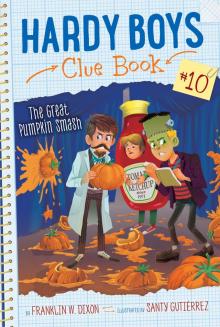 The Great Pumpkin Smash
The Great Pumpkin Smash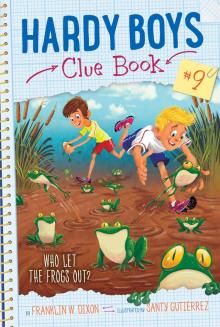 Who Let the Frogs Out?
Who Let the Frogs Out?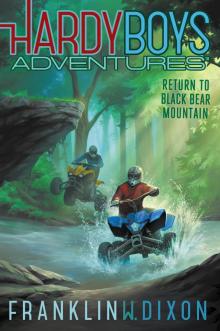 Return to Black Bear Mountain
Return to Black Bear Mountain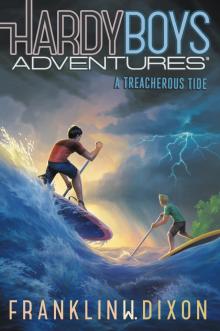 A Treacherous Tide
A Treacherous Tide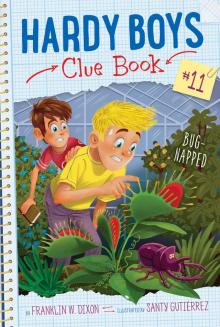 Bug-Napped
Bug-Napped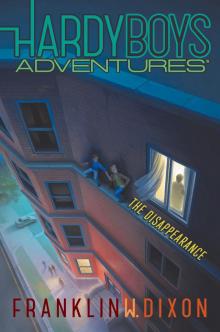 The Disappearance
The Disappearance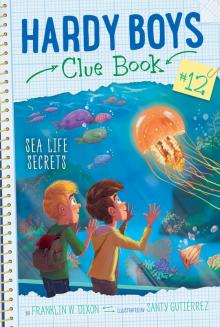 Sea Life Secrets
Sea Life Secrets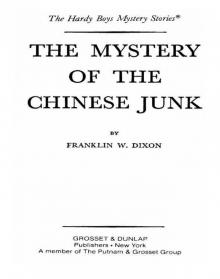 The Mystery of the Chinese Junk
The Mystery of the Chinese Junk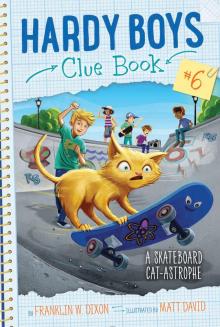 A Skateboard Cat-astrophe
A Skateboard Cat-astrophe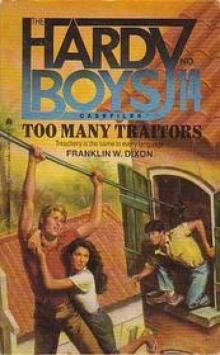 Too Many Traitors
Too Many Traitors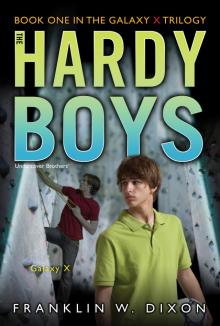 Galaxy X
Galaxy X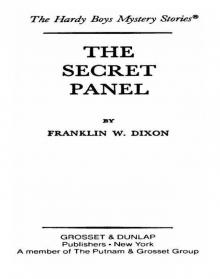 The Secret Panel
The Secret Panel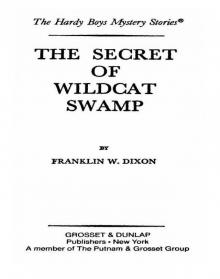 The Secret of Wildcat Swamp
The Secret of Wildcat Swamp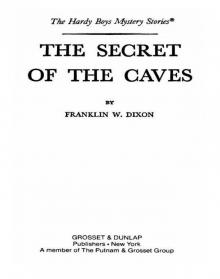 The Secret of the Caves
The Secret of the Caves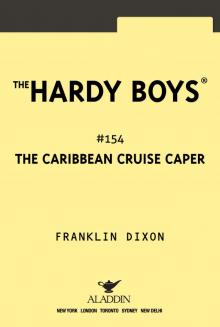 The Caribbean Cruise Caper
The Caribbean Cruise Caper Without a Trace
Without a Trace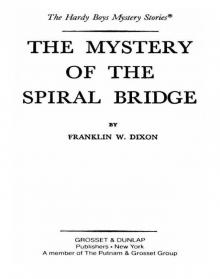 The Mystery of the Spiral Bridge
The Mystery of the Spiral Bridge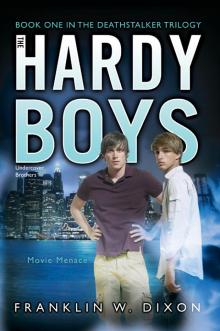 Movie Menace
Movie Menace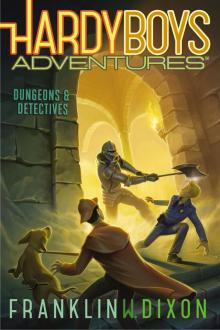 Dungeons & Detectives
Dungeons & Detectives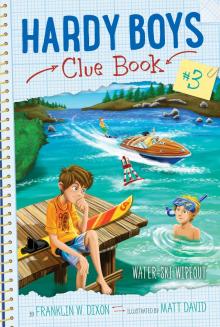 Water-Ski Wipeout
Water-Ski Wipeout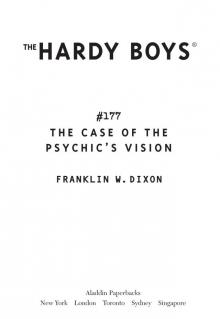 The Case of the Psychic's Vision
The Case of the Psychic's Vision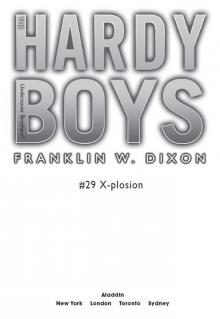 X-plosion
X-plosion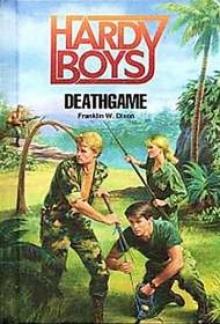 Deathgame
Deathgame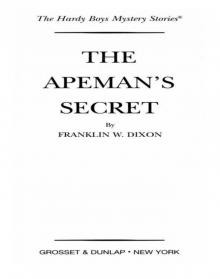 The Apeman's Secret
The Apeman's Secret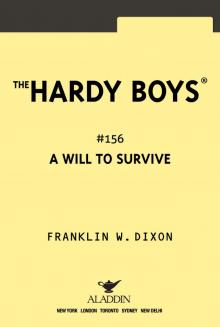 A Will to Survive
A Will to Survive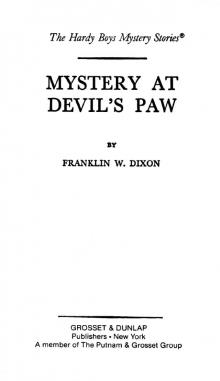 Mystery at Devil's Paw
Mystery at Devil's Paw Blood Money
Blood Money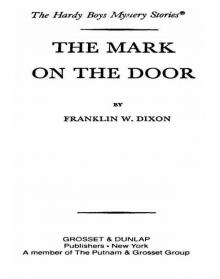 The Mark on the Door
The Mark on the Door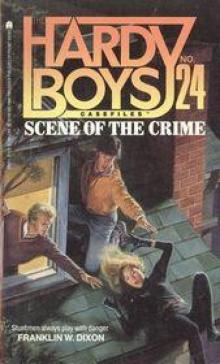 Scene of the Crime
Scene of the Crime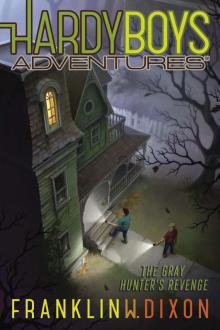 The Gray Hunter's Revenge
The Gray Hunter's Revenge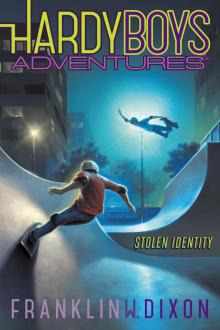 Stolen Identity
Stolen Identity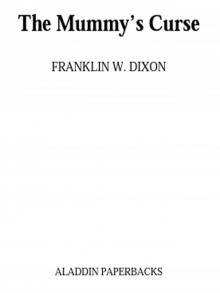 The Mummy's Curse
The Mummy's Curse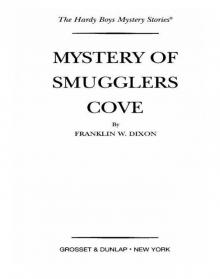 Mystery of Smugglers Cove
Mystery of Smugglers Cove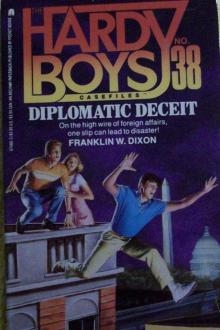 Diplomatic Deceit
Diplomatic Deceit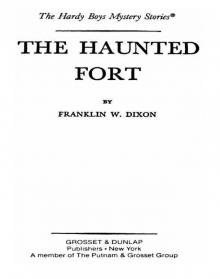 The Haunted Fort
The Haunted Fort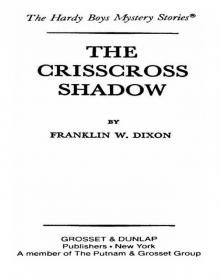 The Crisscross Shadow
The Crisscross Shadow Secret of the Red Arrow
Secret of the Red Arrow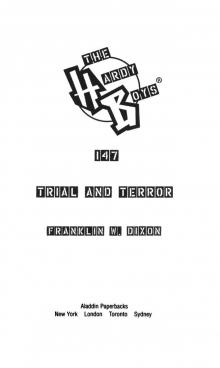 Trial and Terror
Trial and Terror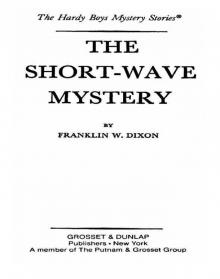 The Short-Wave Mystery
The Short-Wave Mystery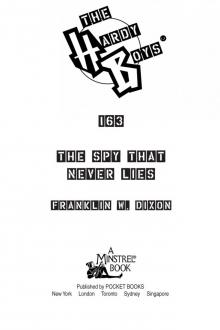 The Spy That Never Lies
The Spy That Never Lies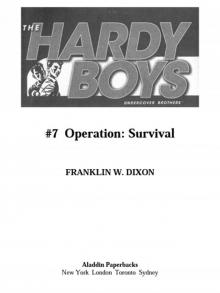 Operation: Survival
Operation: Survival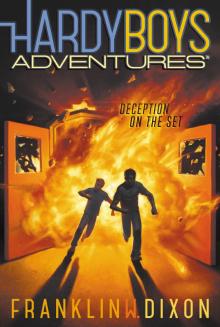 Deception on the Set
Deception on the Set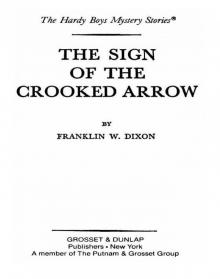 The Sign of the Crooked Arrow
The Sign of the Crooked Arrow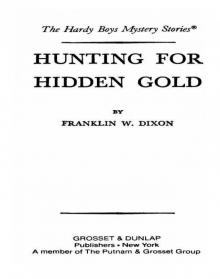 Hunting for Hidden Gold
Hunting for Hidden Gold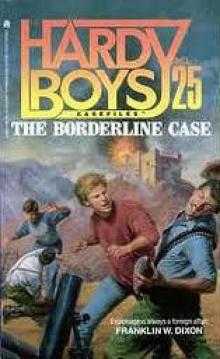 Disaster for Hire
Disaster for Hire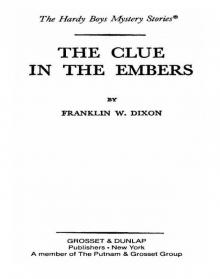 The Clue in the Embers
The Clue in the Embers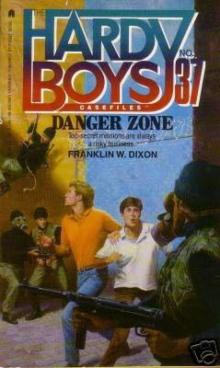 Danger Zone
Danger Zone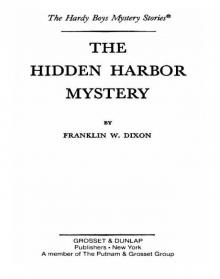 The Hidden Harbor Mystery
The Hidden Harbor Mystery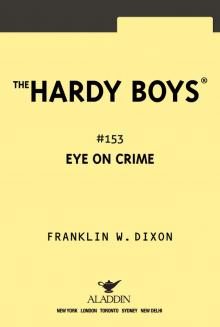 Eye on Crime
Eye on Crime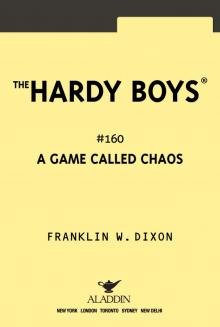 A Game Called Chaos
A Game Called Chaos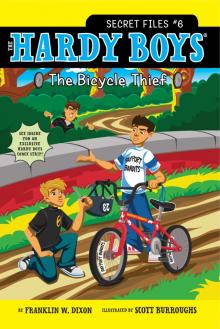 The Bicycle Thief
The Bicycle Thief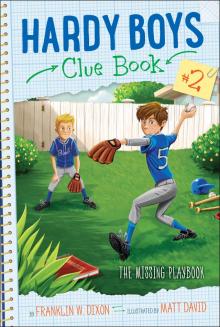 The Missing Playbook
The Missing Playbook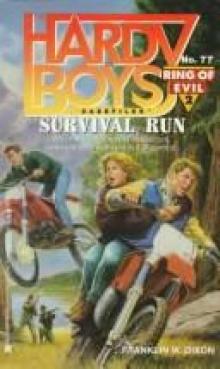 Survival Run
Survival Run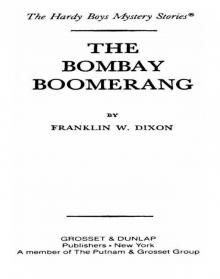 The Bombay Boomerang
The Bombay Boomerang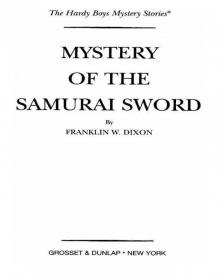 Mystery of the Samurai Sword
Mystery of the Samurai Sword Burned
Burned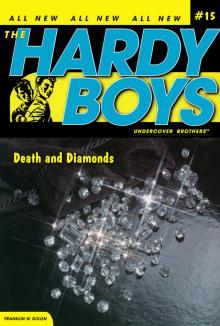 Death and Diamonds
Death and Diamonds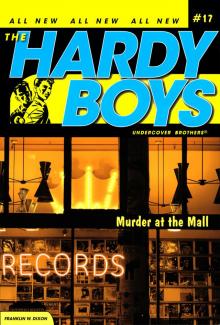 Murder at the Mall
Murder at the Mall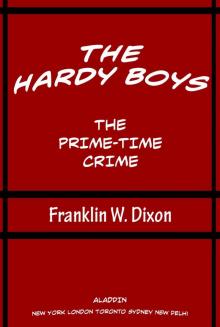 The Prime-Time Crime
The Prime-Time Crime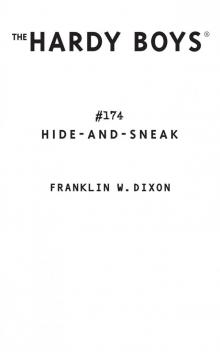 Hide-and-Sneak
Hide-and-Sneak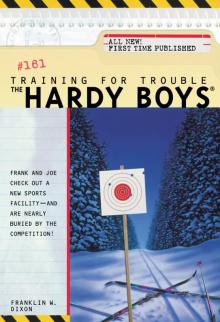 Training for Trouble
Training for Trouble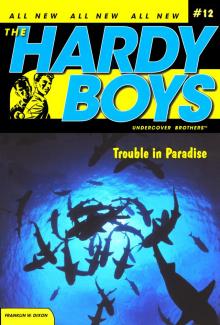 Trouble in Paradise
Trouble in Paradise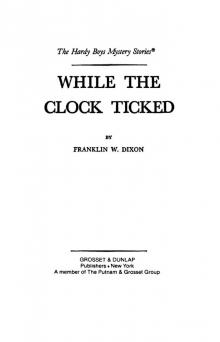 While the Clock Ticked
While the Clock Ticked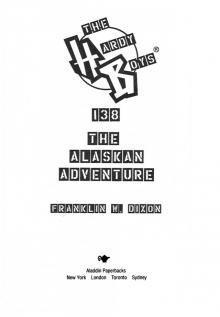 The Alaskan Adventure
The Alaskan Adventure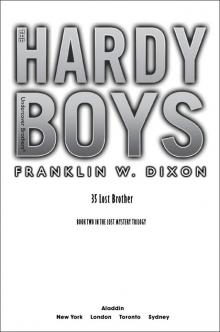 The Lost Brother
The Lost Brother Tunnel of Secrets
Tunnel of Secrets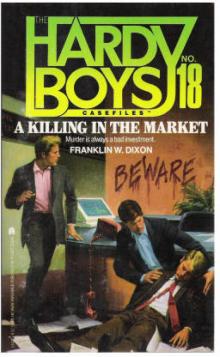 A Killing in the Market
A Killing in the Market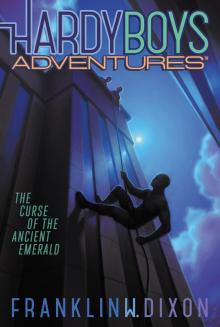 The Curse of the Ancient Emerald
The Curse of the Ancient Emerald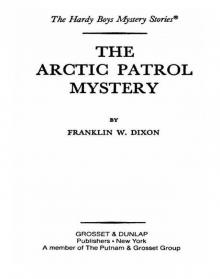 The Arctic Patrol Mystery
The Arctic Patrol Mystery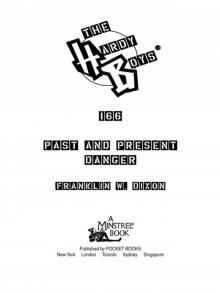 Past and Present Danger
Past and Present Danger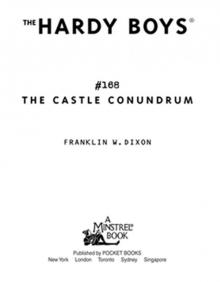 The Castle Conundrum (Hardy Boys)
The Castle Conundrum (Hardy Boys)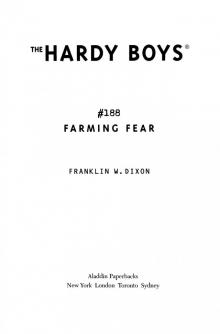 Farming Fear
Farming Fear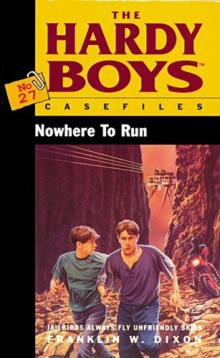 Nowhere to Run
Nowhere to Run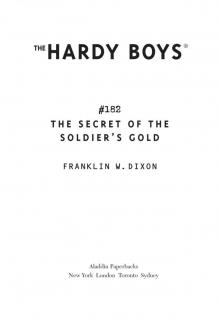 The Secret of the Soldier's Gold
The Secret of the Soldier's Gold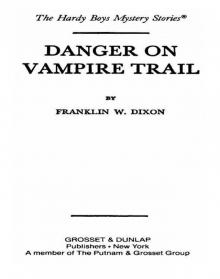 Danger on Vampire Trail
Danger on Vampire Trail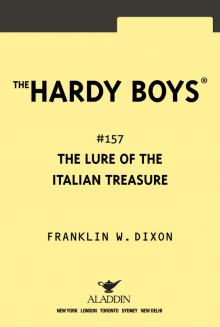 The Lure of the Italian Treasure
The Lure of the Italian Treasure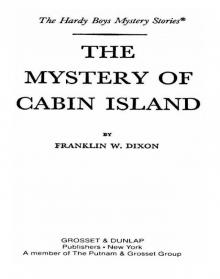 The Mystery of Cabin Island
The Mystery of Cabin Island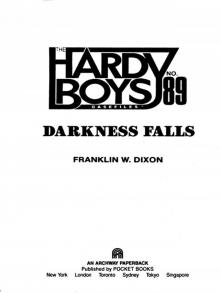 Darkness Falls
Darkness Falls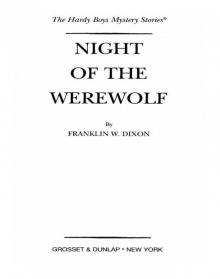 Night of the Werewolf
Night of the Werewolf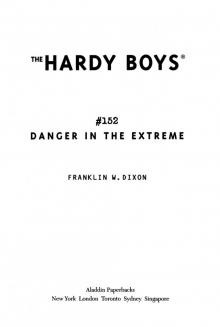 Danger in the Extreme
Danger in the Extreme The Lazarus Plot
The Lazarus Plot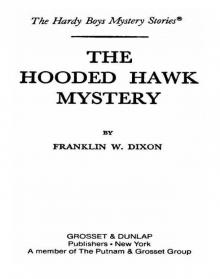 The Hooded Hawk Mystery
The Hooded Hawk Mystery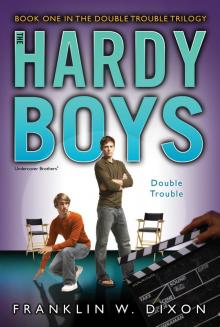 Double Trouble
Double Trouble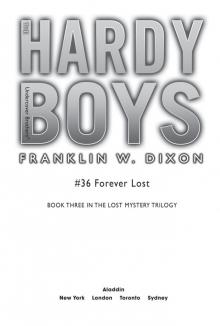 Forever Lost
Forever Lost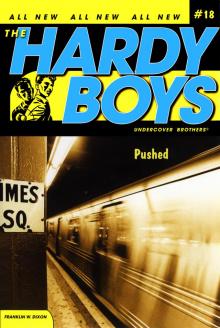 Pushed
Pushed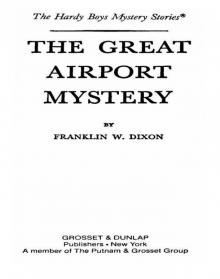 The Great Airport Mystery
The Great Airport Mystery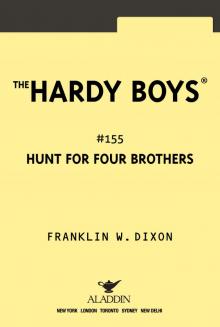 The Hunt for Four Brothers
The Hunt for Four Brothers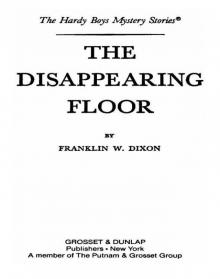 The Disappearing Floor
The Disappearing Floor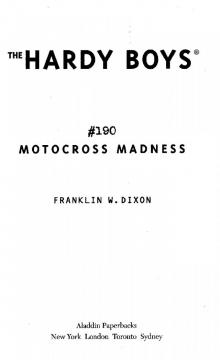 Motocross Madness
Motocross Madness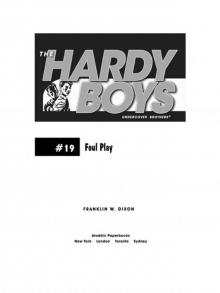 Foul Play
Foul Play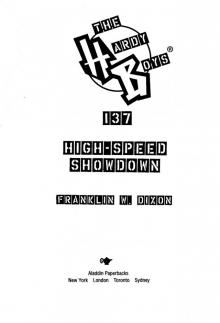 High-Speed Showdown
High-Speed Showdown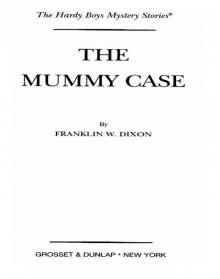 The Mummy Case
The Mummy Case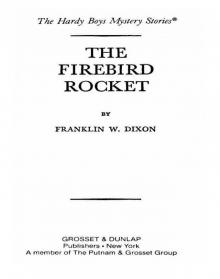 The Firebird Rocket
The Firebird Rocket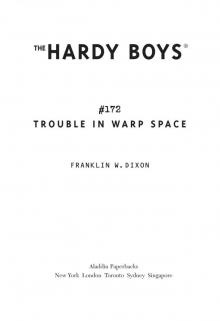 Trouble in Warp Space
Trouble in Warp Space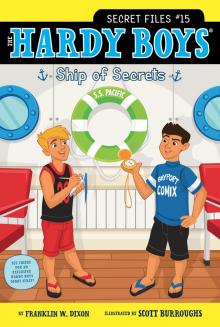 Ship of Secrets
Ship of Secrets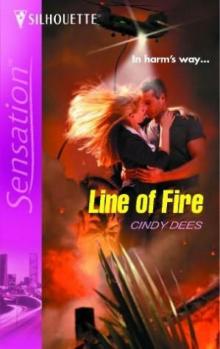 Line of Fire
Line of Fire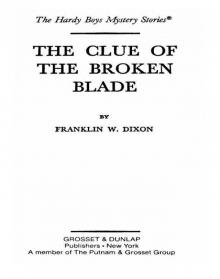 The Clue of the Broken Blade
The Clue of the Broken Blade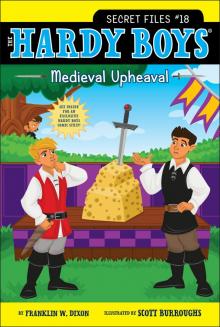 Medieval Upheaval
Medieval Upheaval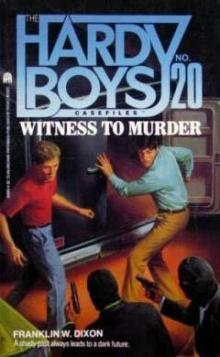 Witness to Murder
Witness to Murder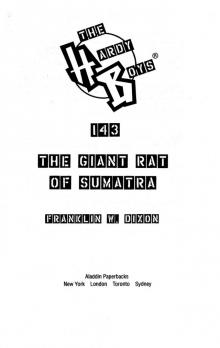 The Giant Rat of Sumatra
The Giant Rat of Sumatra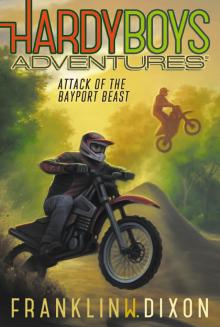 Attack of the Bayport Beast
Attack of the Bayport Beast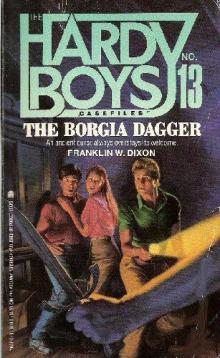 The Borgia Dagger
The Borgia Dagger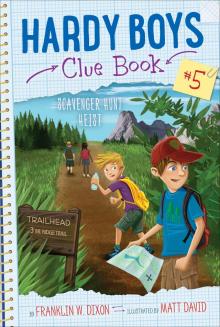 Scavenger Hunt Heist
Scavenger Hunt Heist No Way Out
No Way Out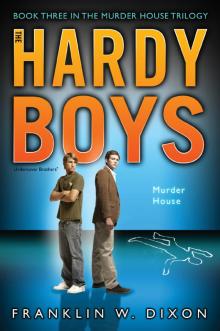 Murder House
Murder House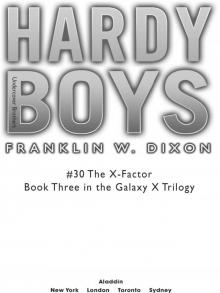 The X-Factor
The X-Factor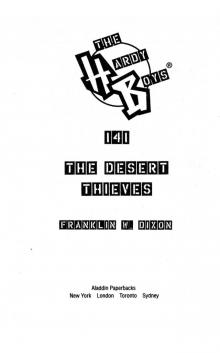 The Desert Thieves
The Desert Thieves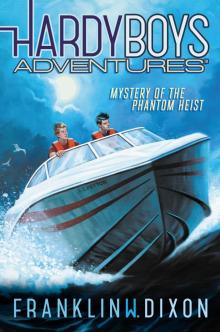 Mystery of the Phantom Heist
Mystery of the Phantom Heist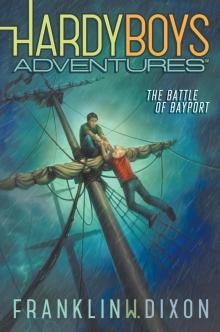 The Battle of Bayport
The Battle of Bayport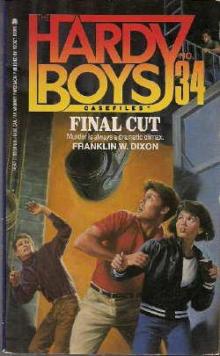 Final Cut
Final Cut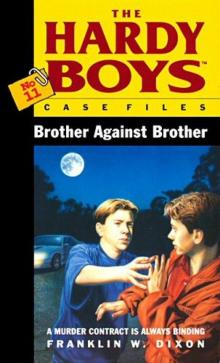 Brother Against Brother
Brother Against Brother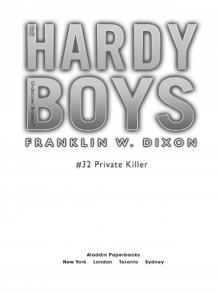 Private Killer
Private Killer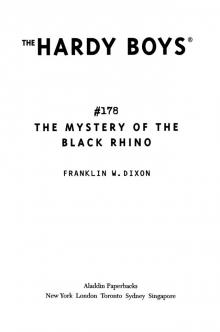 The Mystery of the Black Rhino
The Mystery of the Black Rhino Feeding Frenzy
Feeding Frenzy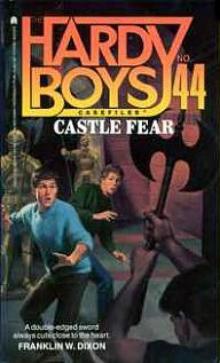 Castle Fear
Castle Fear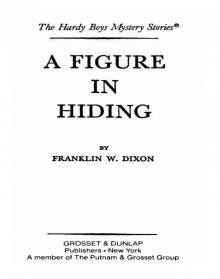 A Figure in Hiding
A Figure in Hiding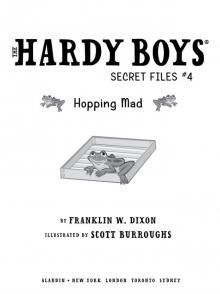 Hopping Mad
Hopping Mad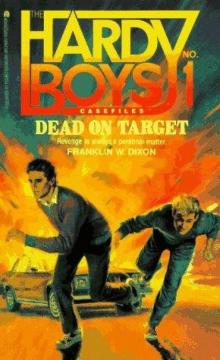 Dead on Target
Dead on Target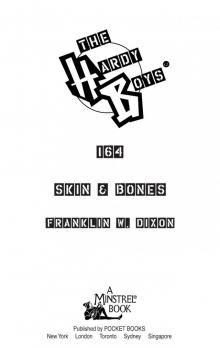 Skin and Bones
Skin and Bones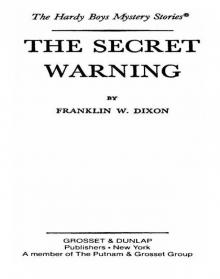 The Secret Warning
The Secret Warning Flesh and Blood
Flesh and Blood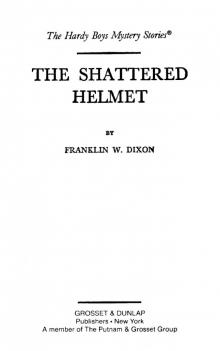 The Shattered Helmet
The Shattered Helmet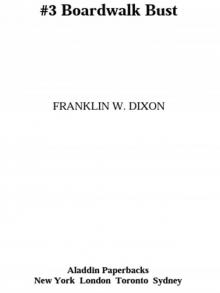 Boardwalk Bust
Boardwalk Bust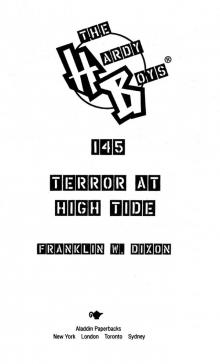 Terror at High Tide
Terror at High Tide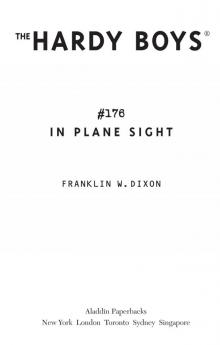 In Plane Sight
In Plane Sight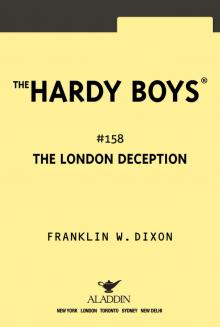 The London Deception
The London Deception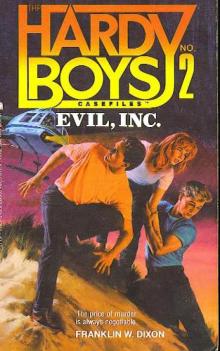 Evil, Inc.
Evil, Inc.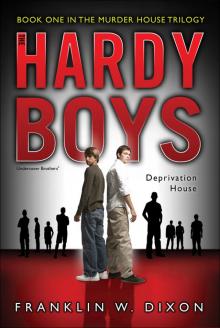 Deprivation House
Deprivation House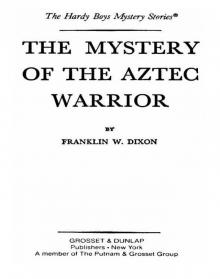 The Mystery of the Aztec Warrior
The Mystery of the Aztec Warrior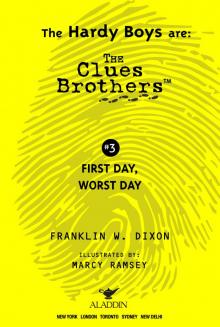 First Day, Worst Day
First Day, Worst Day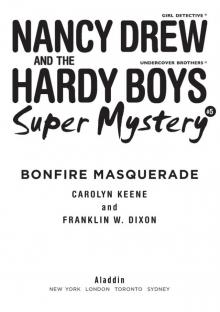 Bonfire Masquerade
Bonfire Masquerade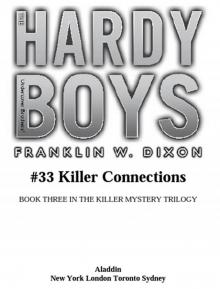 Killer Connections
Killer Connections Strategic Moves
Strategic Moves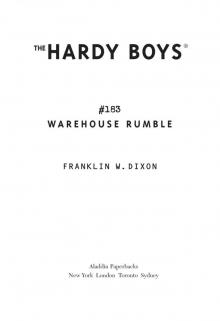 Warehouse Rumble
Warehouse Rumble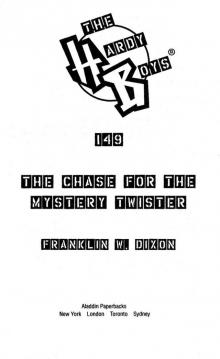 The Chase for the Mystery Twister
The Chase for the Mystery Twister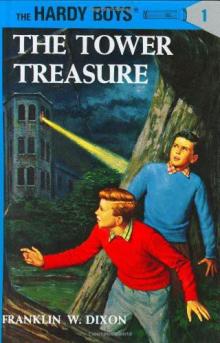 The Tower Treasure thb-1
The Tower Treasure thb-1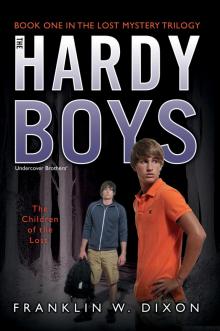 The Children of the Lost
The Children of the Lost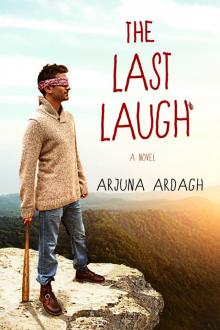 The Last Laugh
The Last Laugh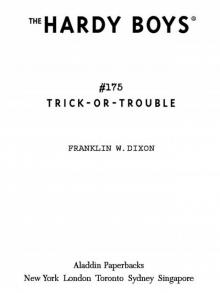 Trick-or-Trouble
Trick-or-Trouble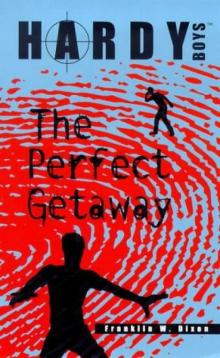 Perfect Getaway
Perfect Getaway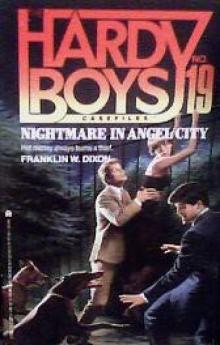 Nightmare in Angel City
Nightmare in Angel City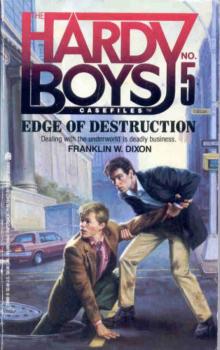 Edge of Destruction
Edge of Destruction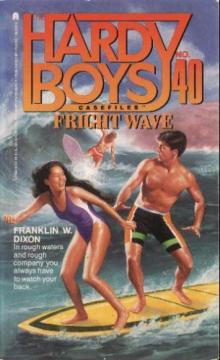 Fright Wave
Fright Wave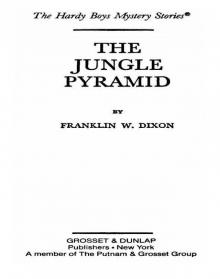 The Jungle Pyramid
The Jungle Pyramid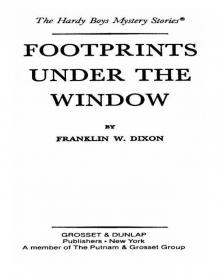 Footprints Under the Window
Footprints Under the Window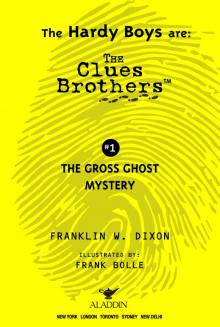 The Gross Ghost Mystery
The Gross Ghost Mystery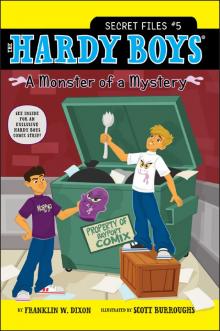 A Monster of a Mystery
A Monster of a Mystery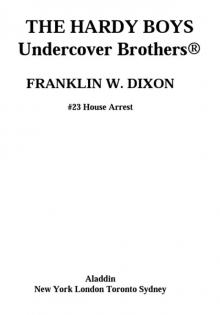 House Arrest
House Arrest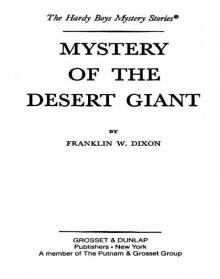 Mystery of the Desert Giant
Mystery of the Desert Giant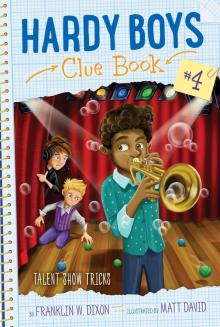 Talent Show Tricks
Talent Show Tricks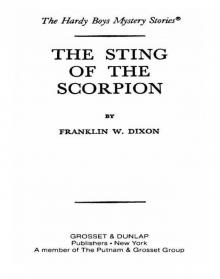 The Sting of the Scorpion
The Sting of the Scorpion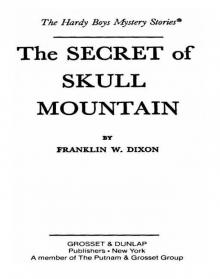 The Secret of Skull Mountain
The Secret of Skull Mountain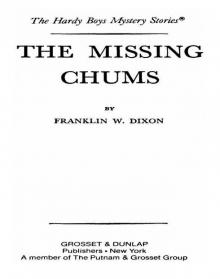 The Missing Chums
The Missing Chums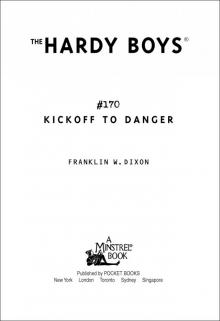 Kickoff to Danger
Kickoff to Danger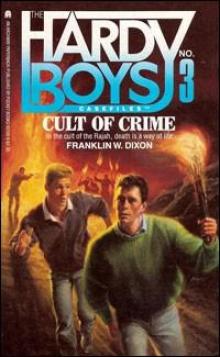 Cult of Crime
Cult of Crime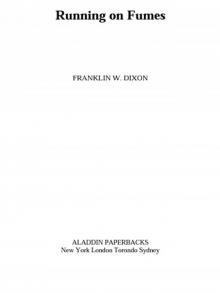 Running on Fumes
Running on Fumes Martial Law
Martial Law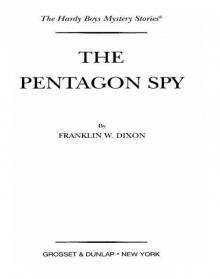 The Pentagon Spy
The Pentagon Spy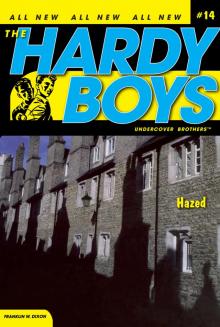 Hazed
Hazed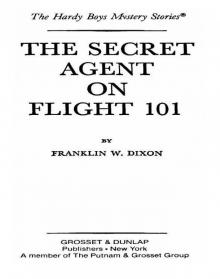 The Secret Agent on Flight 101
The Secret Agent on Flight 101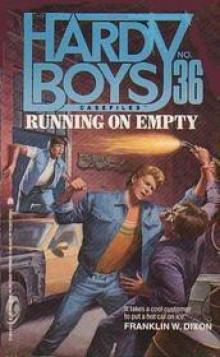 Running on Empty
Running on Empty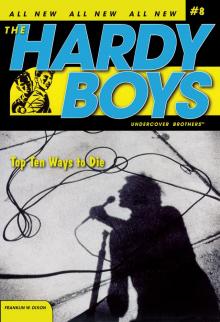 Top Ten Ways to Die
Top Ten Ways to Die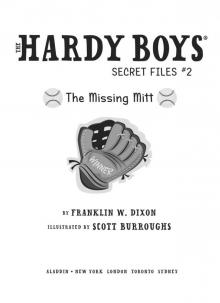 The Missing Mitt
The Missing Mitt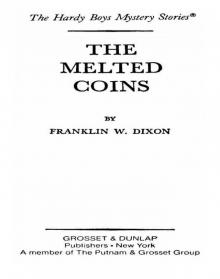 The Melted Coins
The Melted Coins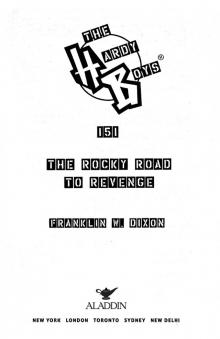 The Rocky Road to Revenge
The Rocky Road to Revenge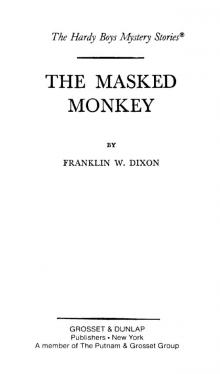 The Masked Monkey
The Masked Monkey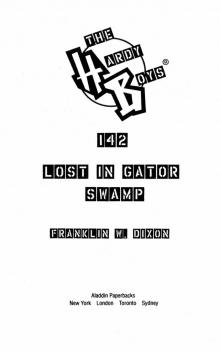 Lost in Gator Swamp
Lost in Gator Swamp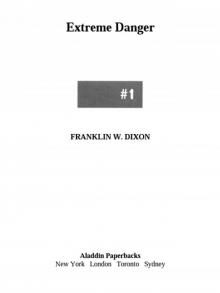 Extreme Danger
Extreme Danger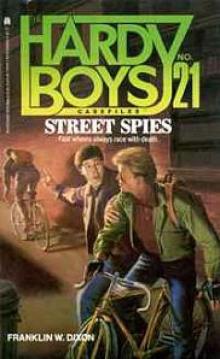 Street Spies
Street Spies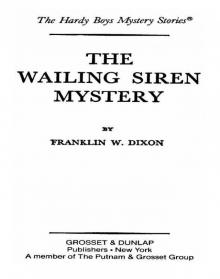 The Wailing Siren Mystery
The Wailing Siren Mystery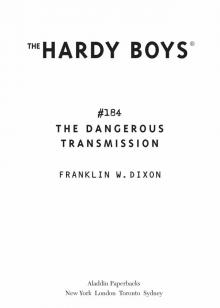 The Dangerous Transmission
The Dangerous Transmission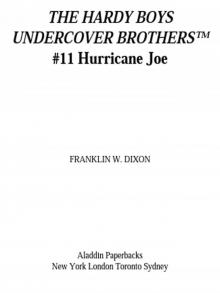 Hurricane Joe
Hurricane Joe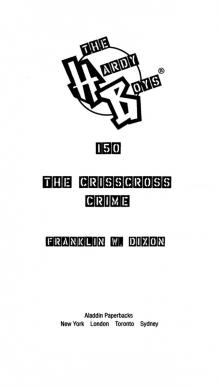 The Crisscross Crime
The Crisscross Crime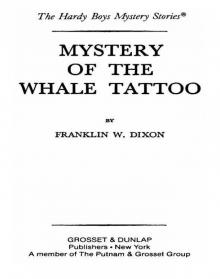 Mystery of the Whale Tattoo
Mystery of the Whale Tattoo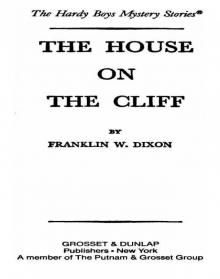 The House on the Cliff
The House on the Cliff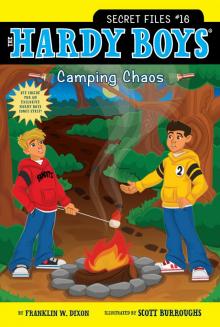 Camping Chaos
Camping Chaos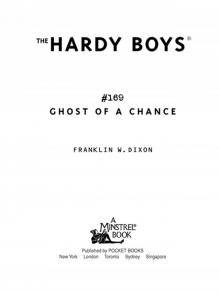 Ghost of a Chance
Ghost of a Chance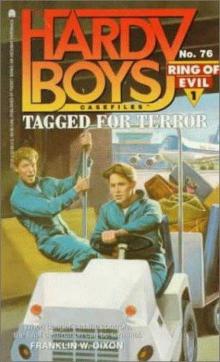 Tagged for Terror
Tagged for Terror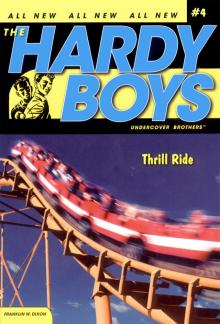 Thrill Ride
Thrill Ride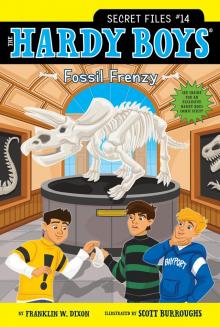 Fossil Frenzy
Fossil Frenzy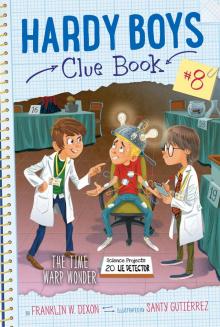 The Time Warp Wonder
The Time Warp Wonder Ghost Stories
Ghost Stories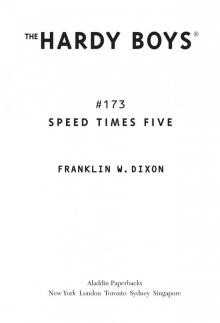 Speed Times Five
Speed Times Five What Happened at Midnight
What Happened at Midnight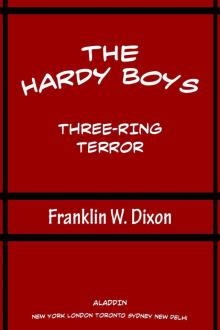 Three-Ring Terror
Three-Ring Terror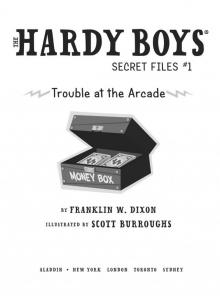 Trouble at the Arcade
Trouble at the Arcade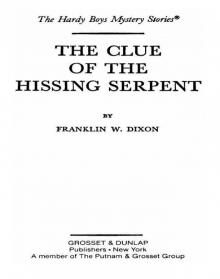 The Clue of the Hissing Serpent
The Clue of the Hissing Serpent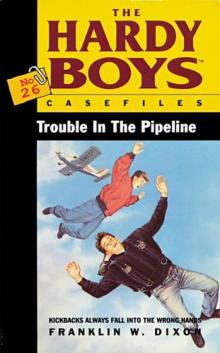 Trouble in the Pipeline
Trouble in the Pipeline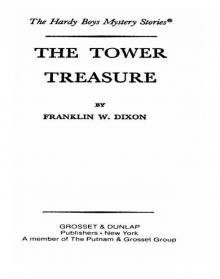 The Tower Treasure
The Tower Treasure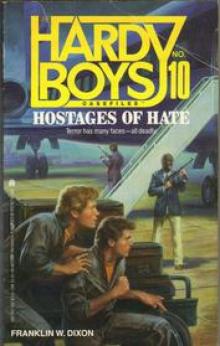 Hostages of Hate
Hostages of Hate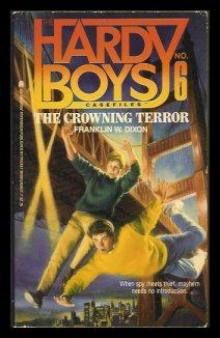 The Crowning Terror
The Crowning Terror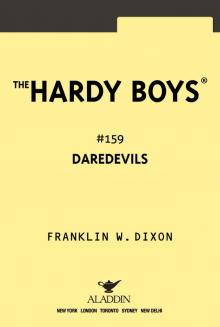 Daredevils
Daredevils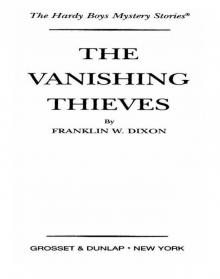 The Vanishing Thieves
The Vanishing Thieves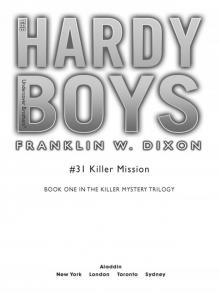 Killer Mission
Killer Mission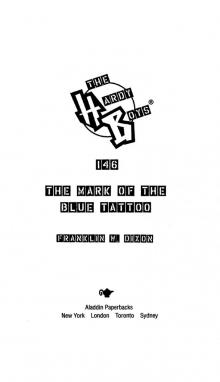 The Mark of the Blue Tattoo
The Mark of the Blue Tattoo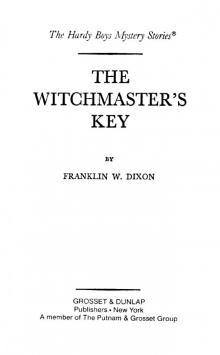 The Witchmaster's Key
The Witchmaster's Key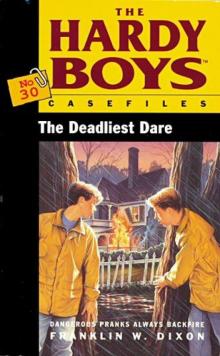 The Deadliest Dare
The Deadliest Dare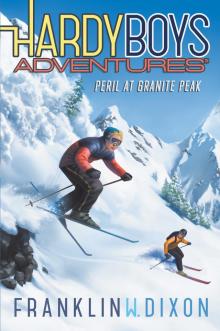 Peril at Granite Peak
Peril at Granite Peak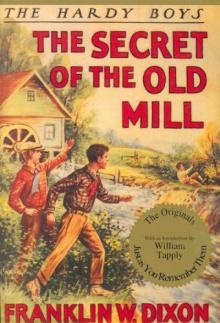 The Secret Of The Old Mill thb-3
The Secret Of The Old Mill thb-3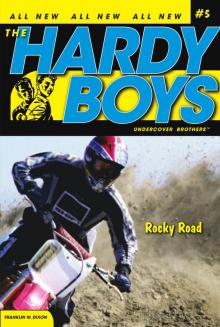 Rocky Road
Rocky Road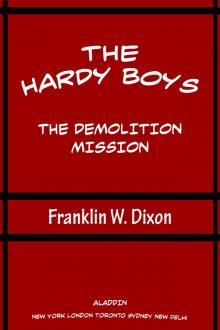 The Demolition Mission
The Demolition Mission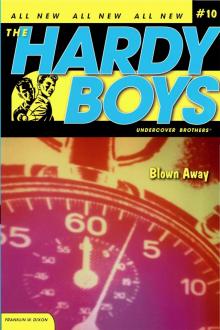 Blown Away
Blown Away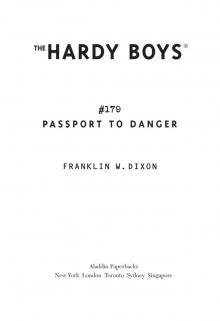 Passport to Danger
Passport to Danger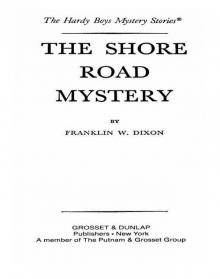 The Shore Road Mystery
The Shore Road Mystery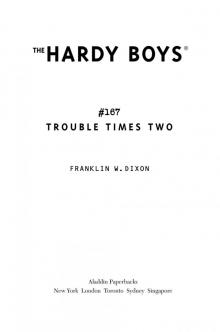 Trouble Times Two
Trouble Times Two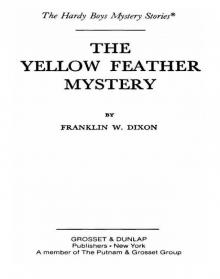 The Yellow Feather Mystery
The Yellow Feather Mystery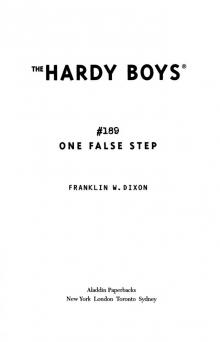 One False Step
One False Step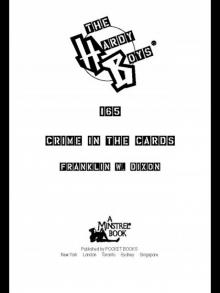 Crime in the Cards
Crime in the Cards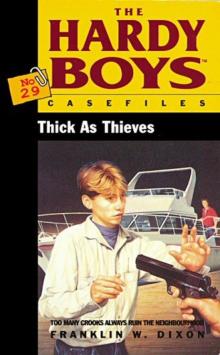 Thick as Thieves
Thick as Thieves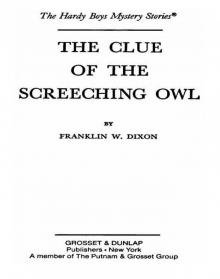 The Clue of the Screeching Owl
The Clue of the Screeching Owl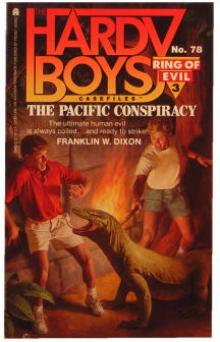 The Pacific Conspiracy
The Pacific Conspiracy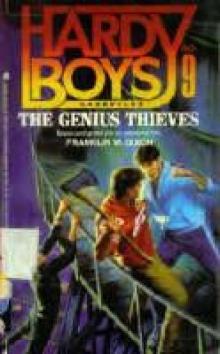 The Genius Thieves
The Genius Thieves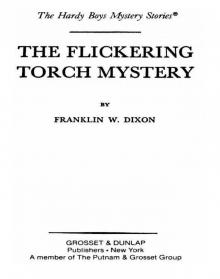 The Flickering Torch Mystery
The Flickering Torch Mystery Into Thin Air
Into Thin Air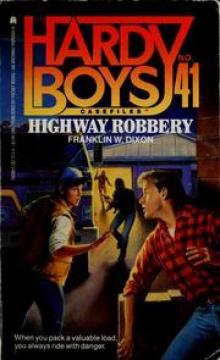 Highway Robbery
Highway Robbery Deadfall
Deadfall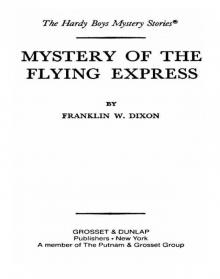 Mystery of the Flying Express
Mystery of the Flying Express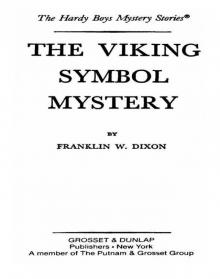 The Viking Symbol Mystery
The Viking Symbol Mystery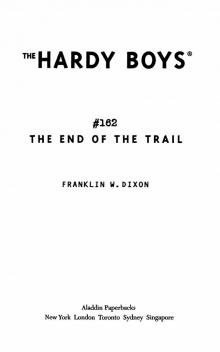 The End of the Trail
The End of the Trail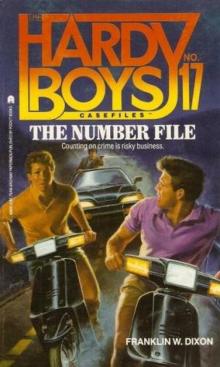 The Number File
The Number File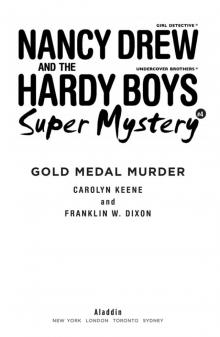 Gold Medal Murder
Gold Medal Murder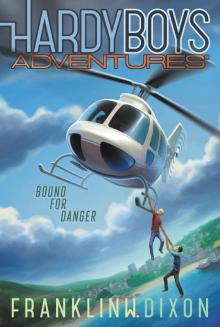 Bound for Danger
Bound for Danger Collision Course
Collision Course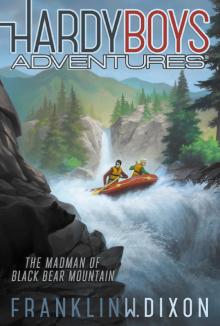 The Madman of Black Bear Mountain
The Madman of Black Bear Mountain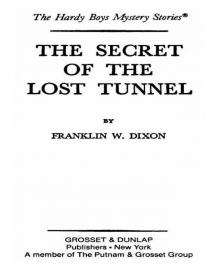 The Secret of the Lost Tunnel
The Secret of the Lost Tunnel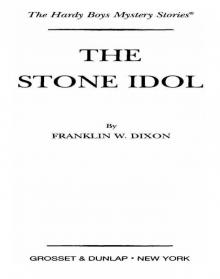 The Stone Idol
The Stone Idol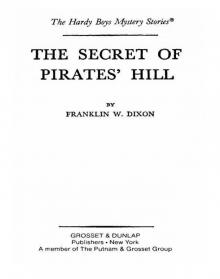 The Secret of Pirates' Hill
The Secret of Pirates' Hill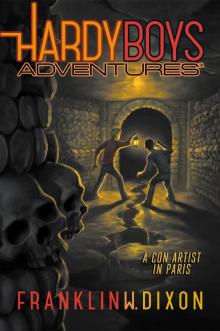 A Con Artist in Paris
A Con Artist in Paris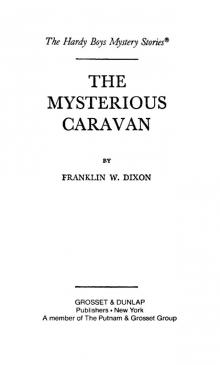 The Mysterious Caravan
The Mysterious Caravan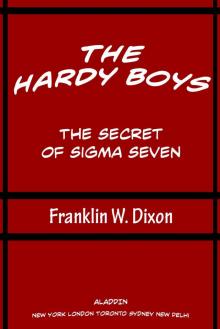 The Secret of Sigma Seven
The Secret of Sigma Seven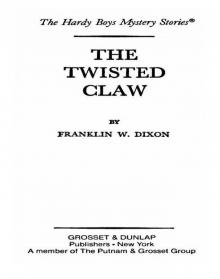 The Twisted Claw
The Twisted Claw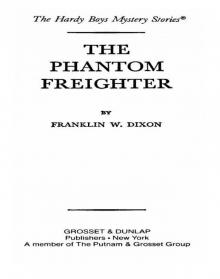 The Phantom Freighter
The Phantom Freighter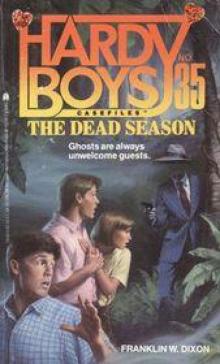 The Dead Season
The Dead Season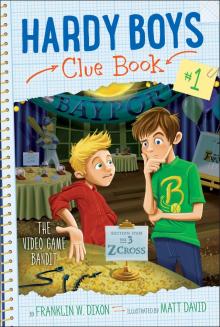 The Video Game Bandit
The Video Game Bandit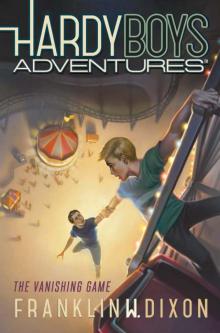 The Vanishing Game
The Vanishing Game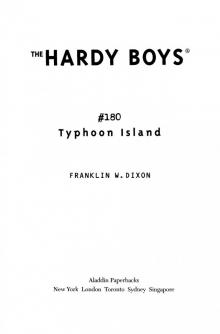 Typhoon Island
Typhoon Island